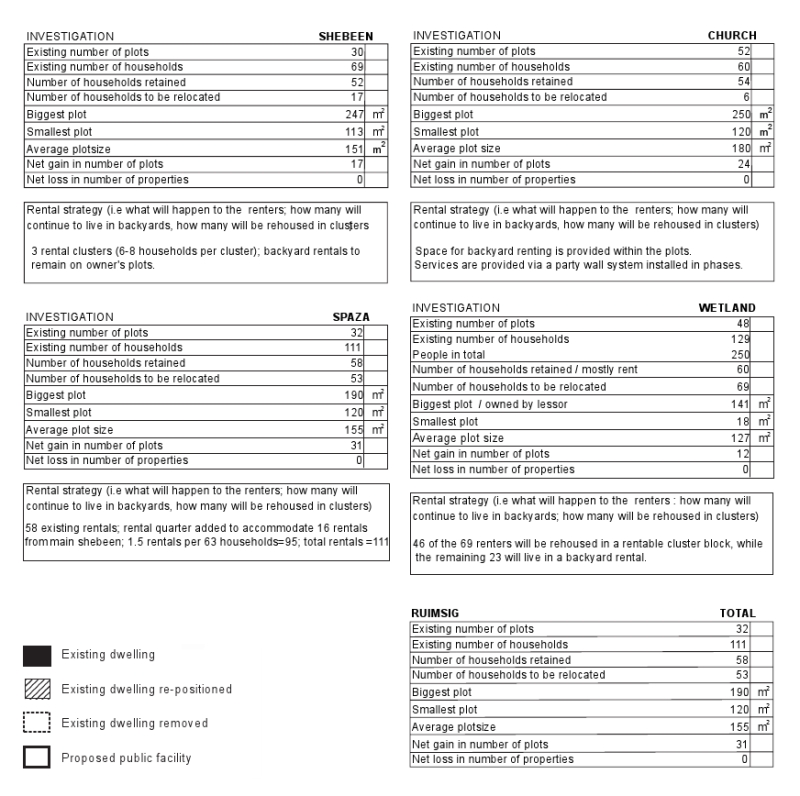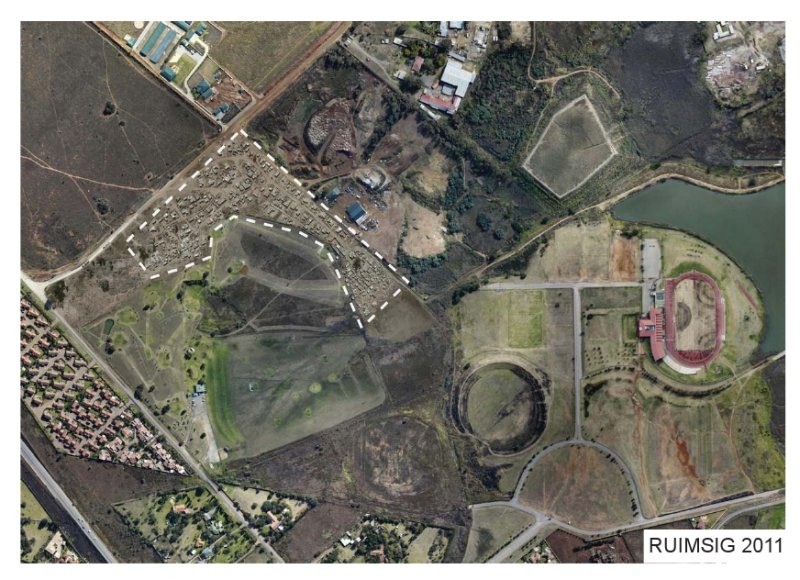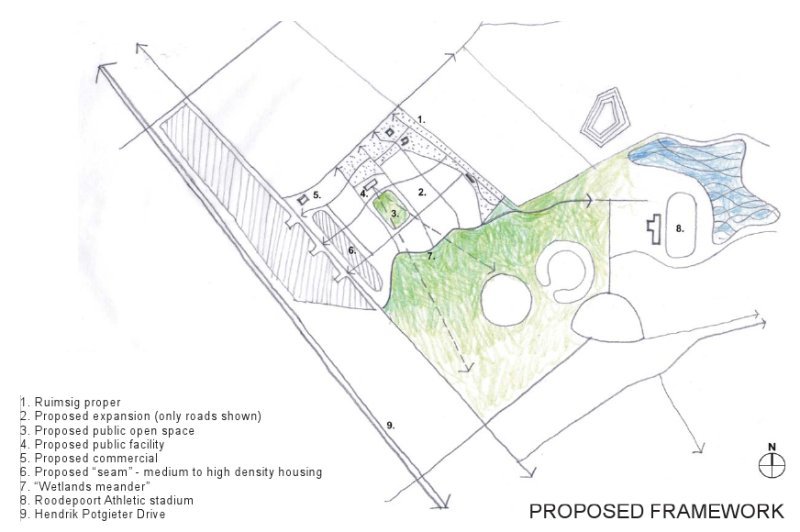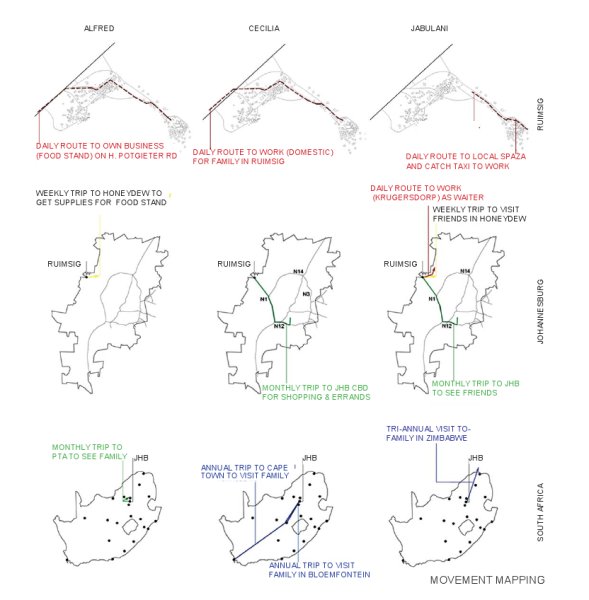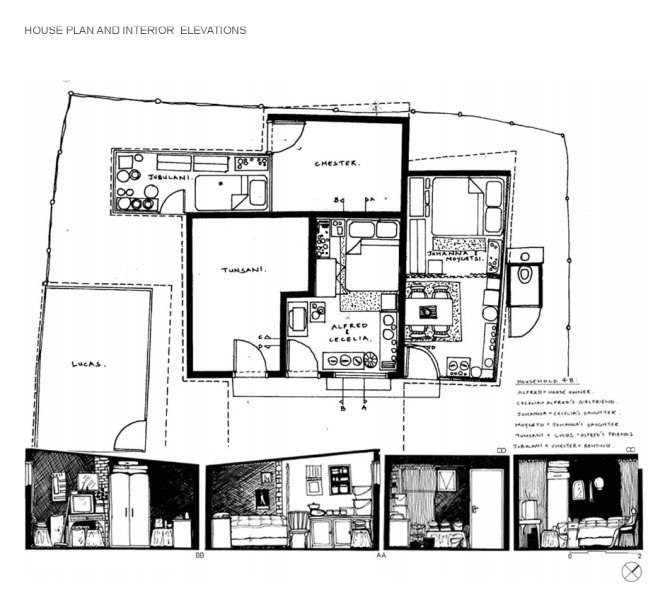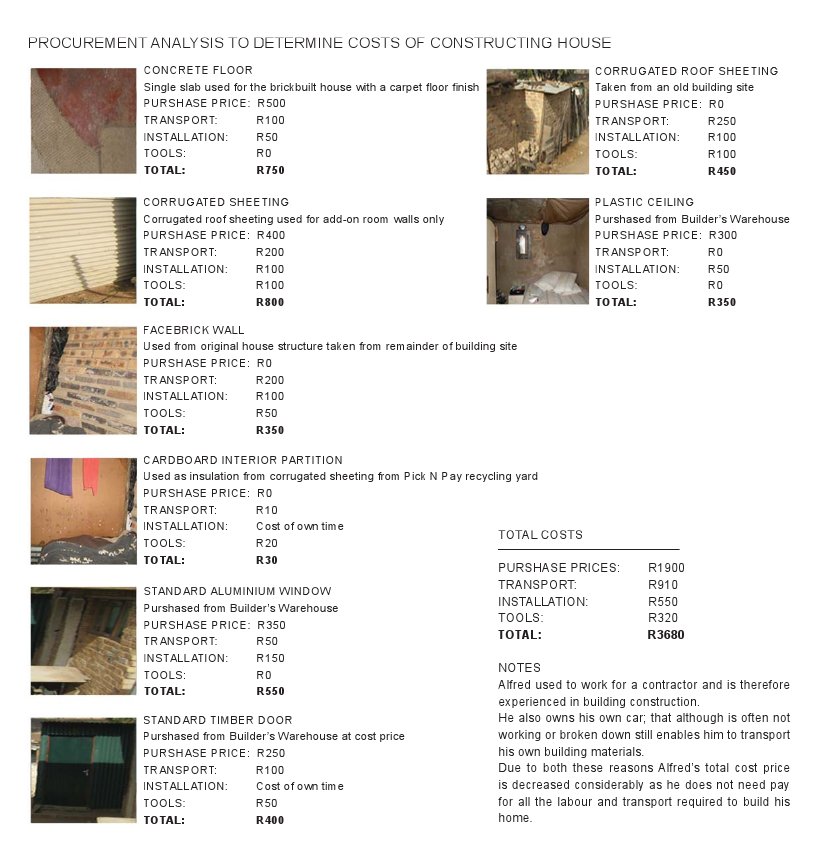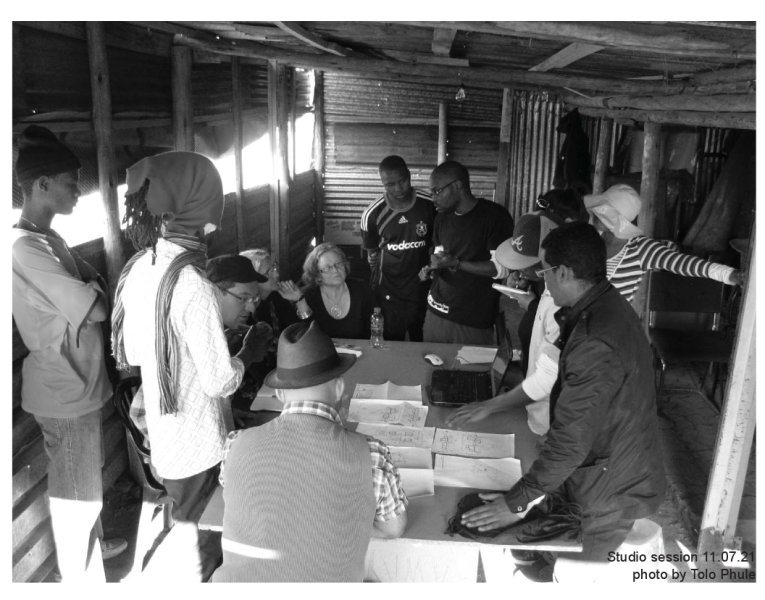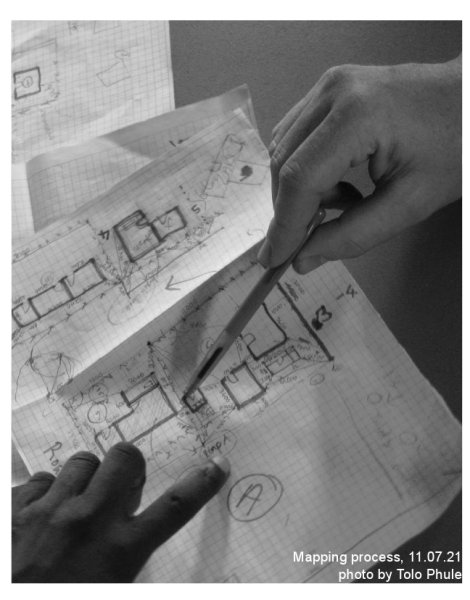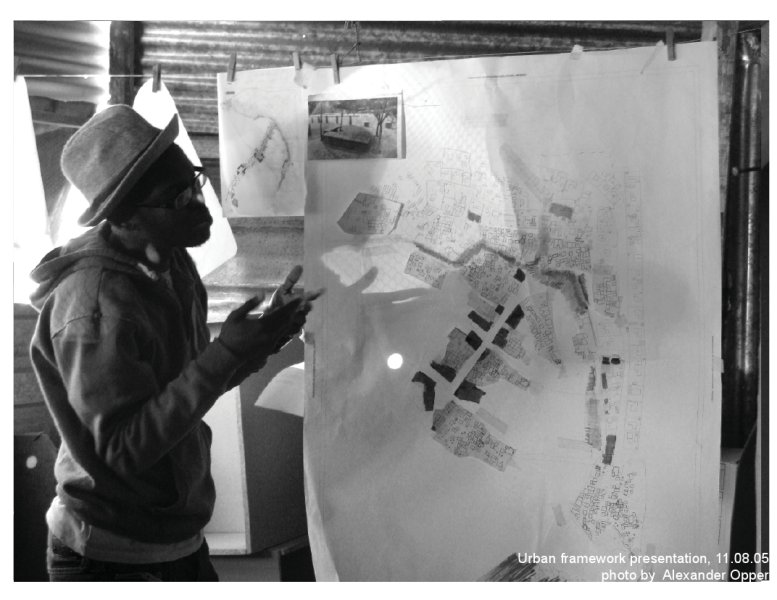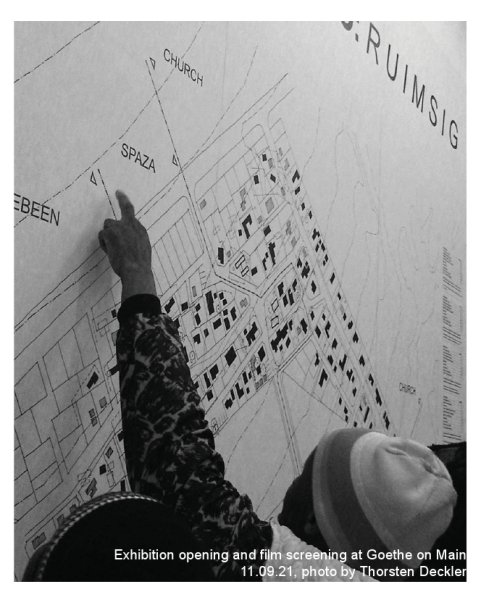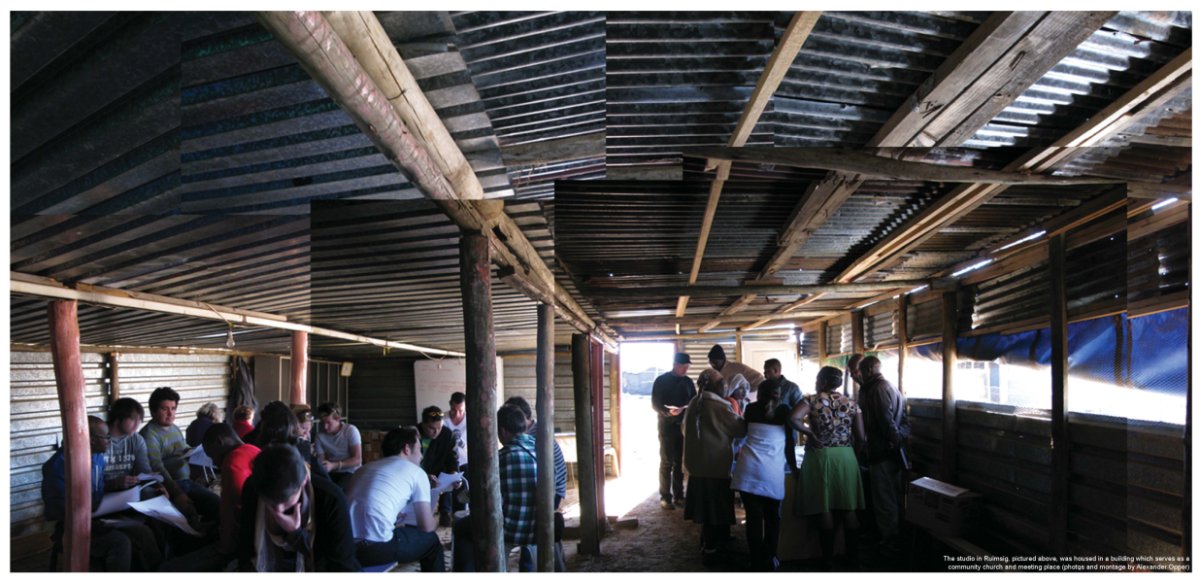You are here
Informal Studio: Ruimsig
INFORMAL STUDIO: RUIMSIG
Ruimsig Johanneburg, 2011
Project Partners: 26’10 South Architects, Goethe-Institut Johannesburg and the University of Johannesburg
Lecturers: Thorsten Deckler, Prof. Lone Poulsen, Alexander Opper (UJ), Melinda Silverman (UJ)
The INFORMAL STUDIO: R U I M S I G has been carried out in partnership with the Goethe-Institut and the University of Johannesburg as an in-situ course on informal settlement upgrading. Sixteen masters students, together with residents of Ruimsig (an informal settlement on the western periphery of Johannesburg), have produced a detailed mapping and re-blocking study. The course was run partially from a studio within the settlement were students and teachers worked with local community architects in a process guided by NGOs and grass-roots organisations. This in-situ interaction formed a vital component linking theory and practice, ‘clients’ (residents), and service providers (students and teachers). The collaborative output of the studio is the first version of a reblocking map showing how minimal shifts and adjustments in what is ostensibly a ‘temporary’ urban condition and fabric can lead to a more equitable distribution of space, the undoing of exploitative rental conditions, the creation of legal road reserve widths (for more effective circulation including emergency services) and future provision of sanitation, water and electricity supply. In addition, the re-blocking facilitates the process of awarding tenure and can ‘bracket’ space for future social amenities. Working with the ISN (Informal Settlement Network) has made possible a meaningful engagement in a people’s process for change and points to new ways of practice for architects and more fundamentally a shift away from the obsession with the single formal house constructed (at great expense) for and not by people.
Questions the studio raised revolved around the ‘perceived’ backlog of 2.5 million formal houses. To students it became clear that the informal city in this case does what the formal system cannot: it provides affordable shelter and a foothold closer to opportunities of employment and advancement. The informal city, constructed by inhabitants themselves with little input from the state or professionals, offers flexible and affordable access to shelter.
In some instances, it displays spatial and programmatic richness sorely lacking from the housing landscapes constructed by teams of professionals. Yet the lack of services, security of tenure, repeated threats of ‘eradication’ and the promise of eventual housing delivery have locked the informal city into an illegal limbo in which mounting tension and frustration are becoming increasingly evident.
Encouragingly, but not surprising, the state’s previous ambition to eradicate informal settlements by 2014 has been redefi ned and refocused (courtesy of the National Delivery Agreement targets) to the upgrading of 400 000 units in well-located informal settlements by 2014. To this effect the National Upgrade Support Programme (NUSP) has been established to assist the state and communities in realising this target. For South Africa this demands a major shift in thinking about housing and how it has been delivered in the past. It acknowledges the efforts people have made in building their own homes and communities. No matter how defi cient, tenuous or exploitative the informal city may be – it directly mirrors the ever increasing backlog in formal housing. Considering that just about 60% of all urban inhabitants in Africa live in informal conditions, it is time for a mode of professional practice which embraces housing as a process rather than a product. The INFORMAL STUDIO: R U I M S I G thus positions itself to educate professionals in becoming skilled in engaging with a process of housing that is not about houses as finished, professionally executed products but about a people-driven process towards improved living environments.
26’10 SOUTH ARCHITECTS IN PARTNERSHIP WITH THE GOETHE-INSTITUT SA,
THE UNIVERSITY OF JOHANNESBURG AND PROF. LONE POULSEN
Powered by AA Media and The Architects Collective of South Africa

